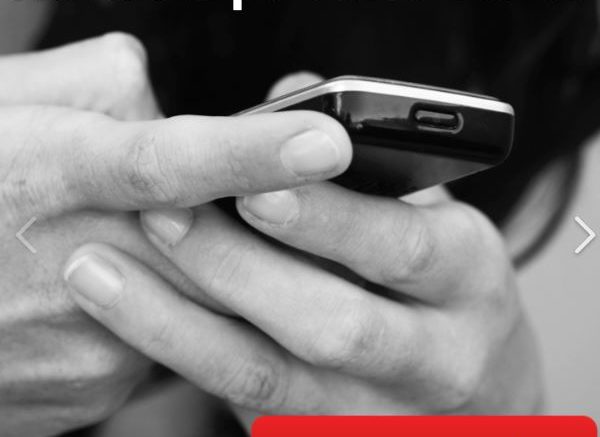Last year, Owego resident Cin Carlin was suddenly unemployed after working for 12 years in the front-end engineering department at Sanmina. Sanmina, a printed circuit board manufacturer, and the former HADCO, closed the doors at its Owego location.
During the transition period, and before landing a new job working in a similar capacity, Carlin decided to search for volunteer opportunities.
Although part of Carlin’s free time involved parent care, an interesting door opened where Carlin completed a training program with Crisis Text Line, and is now a volunteer counselor for the global not-for-profit that provides free intervention via SMS messaging.
Crisis Text Line, founded in 2013, is a 24/7 service. Individuals in the U.S. needing help are instructed to text the number 741741. According to their statistics, Crisis Text Line has processed 86 million messages between 2013 and October 2018. The organization maintains a number of statistics and culminates the data on their website, crisistrends.org.
Texting has its advantages and disadvantages within our everyday lives, yet there is one inherent advantage; a text message could potentially save a life.
“That young person you see texting away,” Carlin said, pausing, “They could be utilizing the Crisis Text Line.”
For young people in particular, Carlin explained that text messaging is an appealing way to seek help, and whereby individuals don’t have to worry about the possibility of others listening in on a personal telephone conversation.
Each text conversation at Crisis Text Line is assessed for severity by an algorithm, and then queued accordingly. In order to assess the situation further, counselors are trained to watch for key words or phrases during the initial few moments of a text conversation.
Via the Crisis Text Line, Carlin communicates with youth and adults all across the U.S. Issues run the gamut, from students dealing with bullying, gender identity or eating disorders to stressed-out mothers at home with young children, or couples having disagreements, to people dealing with relationship break-ups or ending their lives by suicide, and many more.
Carlin shared that veterans often use the text line, too, and many times their concerns are relatable. A ten-year veteran of the U.S. Navy, Carlin served primarily out of Norfolk, Va. aboard the U.S.S. Laramie, a fleet replenishment oiler. Carlin also worked as an Information Technology specialist for a helicopter squadron.
Carlin is one of over 4,500 active volunteer crisis counselors. In order to become a Crisis Text Line volunteer, Carlin completed several hundred hours of training along with required background checks and personal referrals.
“It is a tough class, and pretty extensive,” Carlin said.
Today, Carlin commits about four to five hours a week, and sometimes more. Crisis Text Line encourages counselors to limit their hours to no more than 12 hours per week so that they, too, can take their own self-care time.
When Carlin logs on, a “Platform” describes how many counselors and supervisors are on-line, how many conversations are live, and how many texts are in queue. Carlin often has to reassure texters that they are texting with a real person and “not a robot,” and that all of the conversations remain anonymous and confidential. If an issue is elevated for referral to other services, Carlin explained that a supervisor, a team member who is a practicing and degreed clinician, jumps in to complete the conversation and set up a plan.
According to Crisis Text Line, “Counselors help bring texters from ‘a hot moment to a cool calm’ through active listening and collaborative problem solving,” and, in addition, “When people hear caring language while in a conversation with a counselor, they will feel less suicidal.”
Carlin added that counselors also, “Show empathy, validate an individual’s feelings and reminds the texter that they are important.”
Volunteering for the organization, has, Carlin said, “Been worthwhile and fulfilling,” adding, “I am absolutely glad I got involved with Crisis Text Line and am pleased to have helped avert many serious situations.”
For free, 24/7 crisis support in the U.S., text 741741.
You can also call the Suicide Prevention Lifeline at 1-800-273-TALK (8255).



Be the first to comment on "Emotional support is a text away "